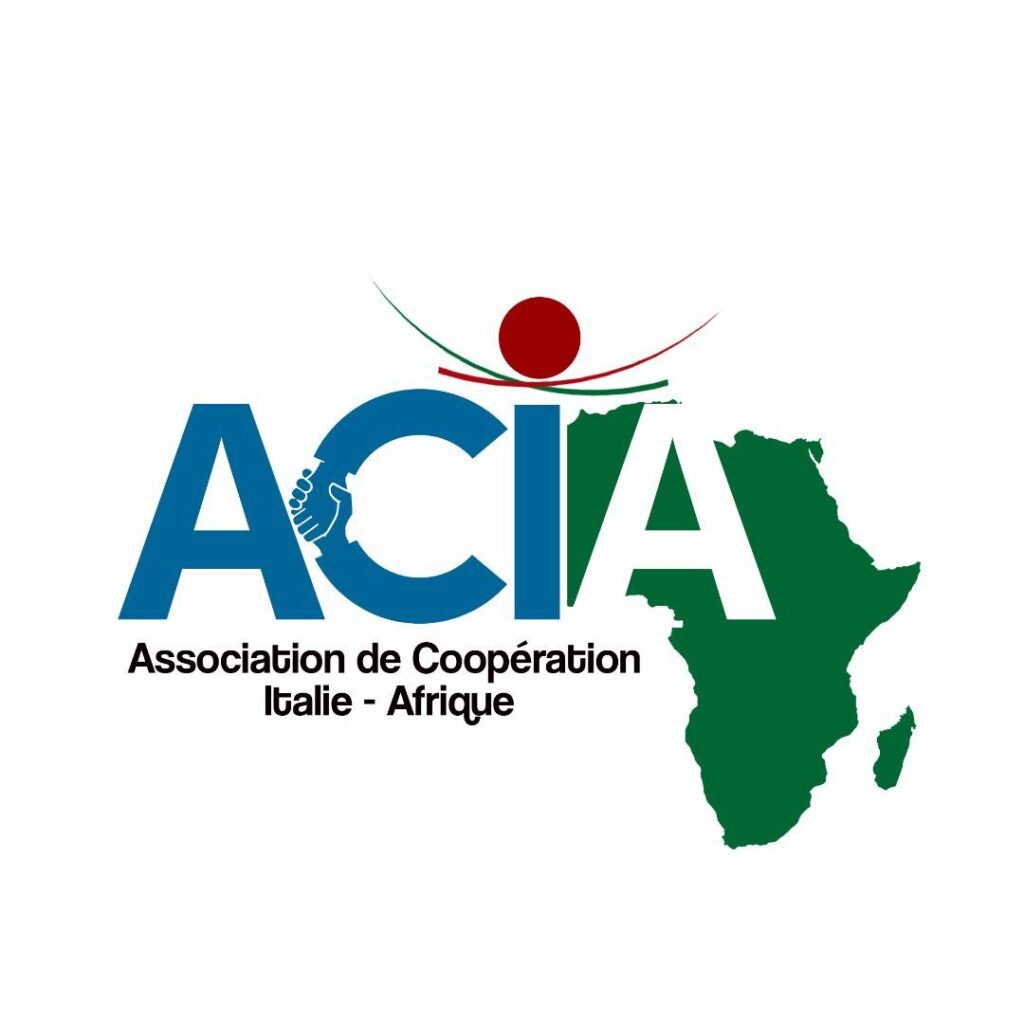Italian investments are protected by the Bilateral Agreement for the Mutual Protection of Investments, which entered into force on 15 June 2004 and is still applied today.
As far as direct investments are concerned, the foreign operator should set up a company under Cameroon law in order to be able to operate freely in the country.
If foreign entrepreneurs hold more than 50% of the capital in order to carry out the activity, they will have to obtain prior administrative authorisation.
For companies that are not based in Cameroon, the law requires registration in the Trade Register within two months of the opening of a branch, subsidiary or other form of commercial affiliation in the country.
Individuals who have their habitual residence in Cameroon are subject to income tax.
TAX SYSTEM IN CAMEROON
The General Tax Code (GTC) in force is the one enacted by Law No. 2002-03 of 19 April 2002, later amended by the 2007 Finance Act, which reintroduced the reinvestment scheme.
Companies and individuals with business, agricultural or self-employment income who reinvest part of their income in Cameroon are granted a tax reduction on 50 % of the value of the investment (which must be at least 25,000,000 Fcfa).
The tax rebate may not exceed 50% of declared income.
The personal income tax (Irpp)
Natural persons who have their habitual residence in Cameroon, i.e. persons who own a dwelling by way of ownership, usufruct or lease, or those who do not have a dwelling but have made it their principal place of residence or centre of interest or business, are subject to IRPP.
Subject to the provisions of international double taxation conventions, Cameroonian or foreign taxpayers who have their habitual residence abroad and receive income from a Cameroonian source are subject to the tax.
The following are exempt from payment of the tax to diplomatic agents, consuls and consular agents of foreign nationality when the country whose representation they hold grants a similar advantage to Cameroonian diplomatic and consular agents.
The tax base
The CGI states that for the purpose of calculating IRPP, taxable income is subject to a proportional tax (levied at source for each income category) and a progressive tax (levied on total net taxable income).
The taxable income is the total income, consisting of the algebraic sum of the net incomes of the categories (each of which determines the taxable incomes according to its own rules) minus the charges incurred in the tax year (which are mandatory) that have not already been taken into account in determining the individual incomes (e.g. interest payable on loans for the purchase of a main residence, arrears of annuities paid compulsorily or free of charge, voluntary contributions paid to supplementary pension schemes within the limit of 10 % of employee income, contributions paid to the National Social Security Fund, life insurance premiums within the limit of 10 % of net taxable income calculated after other deductible expenses).
Rates, payments and declaration
The taxable income determined in this way is subject to progressive taxation (barème progressif) after the so-called 'family' abatement of 500,000 Fcfa for dependents (since 2004, the family quotient system is no longer applied).
The proportional tax paid on account of individual category income is deducted from the progressive tax calculated by applying the following rates:
Income brackets Tax rate
- 0 to 2,000,000 FCFA 10%
- 2,000,001 to 3,000,000 FCFA 15%
- 3,000,001 to 5,000,000 FCFA 25%
- Over 5,000,001 FCFA 35%
The tax is paid in two stages:
monthly advance payments, by the 15th of the following month, by withholding tax on each category of income;
calculation of the tax due at the beginning of the following year by applying the bracketed rates to the total income. The balance (minus advance payments) must be paid by 15 March.
The declaration must be submitted on a paper form at the local offices by 31 March for the previous year's income and must be accompanied by an indication of family loads and of the elements considered by the CGI as indices of wealth (main and secondary residences also abroad, domestic servants, cars, boats, tourist planes, swimming pools, tourist trips, water consumption, electricity, telephone).
Income categories
As anticipated, the payment of IRPP by monthly instalments is generally made by withholding tax on the following categories of income:
employment income consisting of:
- salaries,
- salaries,
- allowance
- prizes of any kind,
- fringe benefits,
- pensions
- life annuities.
The taxable base is the net salary amount obtained after the deduction of social security contributions, a flat-rate abatement of 30% and the abatement of 500,000 Fcfa per month. The barème progressif is applied to the tax base thus determined. Gross incomes of less than 52,000 Fcfa are exempt from tax.
Family and welfare allowances, scholarships, war and disability pensions, sums received as compensation for work-related injuries, and sums received by heirs due to the death of the employee are not taxable;
income from land (revenus fonciers):
provided that the income is not received in the context of an agricultural, business or self-employment activity, derives from the rental of built-up real estate and equipment of industrial establishments and from capital gains realised by natural persons on the sale of built-up and unbuilt-up real estate.
The tax base is the difference between the amount of gross income realised and the total expenses (repairs, maintenance, operating expenses) set at a flat rate of 40 % of the gross income. The capital gain is the difference between the price declared by the parties and the value of the asset at the time of the last transfer.
The withholding tax, amounting to 5 %, is levied by the lessee with the obligation to pay it to the tax collector at the tax office and the right to offset it in the declaration. The capital gain is definitively determined by the notary;
capital income (revenus de capitaux mobiliers):
dividends distributed and interest accrued on bonds, loans, deposits and securities are considered as such.
A withholding tax of 16.5% (15% for shareholders or creditors domiciled in France) is applied to the taxable base, consisting of the total gross amount of distributed dividends or accrued interest;
business income (bénéfices artisanaux, industriels et commerciaux - Baic):
arise from the exercise of a commercial, industrial or artisanal activity (including mining). The tax base is the difference between revenues and the related costs.
Taxpayers with a turnover exceeding 100 million Fcfa are subject to the 'régime du réel' and income is determined analytically.
Taxpayers with annual turnover between 15 and 50 million Fcfa are subject to the 'régime de base' and those with turnover between 50 and 100 million Fcfa to the 'régime simplifié':
In both cases, unless there is an irrevocable option for the real regime, taxable income is determined by applying different percentages established by ministerial decree to the turnover.
Taxpayers who do not fall under one of these three regimes are subject to a tax in lieu of IRPP, value added tax and operating licence fee, according to a scale established by the local authorities that benefit from the revenue from this tax;
income from self-employment (bénéfices des professions non commerciales - Bnc):
derive from the exercise of liberal professions, offices and functions, as well as from the exercise of profit-making activities whose profits are not attributable to one of the other categories of income (e.g. income received from the use or granting of the use of copyrights, inventions, patents, trademarks or manufacturing formulas).
The tax base is the difference between the remuneration received and the expenses incurred in the exercise of the profession. For taxpayers with annual gross remuneration in excess of Fcfa 30 million, the tax base is determined according to the real regime, i.e. by the analytical method, whereas taxpayers with gross remuneration between Fcfa 15 and Fcfa 30 million are subject to the simplified regime (15 % is applied to the declared remuneration);
agricultural income (bénéfices de l'exploitation agricole):
are those earned by both the owners and tenants of the land.
The tax base is determined by applying the same rules as for determining business income (revenues minus costs).
They are exempt from Irpp income from the exploitation of land used for food production whose surface area is less than 5 hectares.
Taxpayers with a turnover between Fcfa 5 million and Fcfa 30 million are subject to the simplified regime according to the rules for business income, while those with a turnover exceeding Fcfa 30 million determine their income by the analytical method (real regime).
For taxpayers with a turnover of less than Fcfa 5 million, the taxable income is determined at a flat rate by a special departmental commission and the tax is paid in full.
For the last three income categories, the monthly advances, to be paid by the 15th of the following month, are equal to 1.% (1% plus 0.1% as CAC) of the previous month's turnover (1.65% payable quarterly for companies in the basic regime).
The IRPP due for the entire tax period may not, however, be less than 1 % of turnover (1.5 % for companies under the basic system).
Corporate Tax (IS)
For the principle of territoriality theIs affects the income of companies carrying on an economic activity in Cameroon, or income that is attributable to the company under an international double taxation convention.
They are subject to Is:
- corporations,
- cooperatives,
- public bodies
- State bodies with financial autonomy,
- civil companies engaged in an activity of an industrial or commercial nature or in profit-making operations,
- permanent establishments of foreign companies.
The tax base
It is determined according to the same rules as for the determination of business income using the analytical method.
The following costs are deductible:
- depreciation (only straight-line depreciation),
- losses,
- provisions for specific losses or charges (excluding those for foreign exchange losses),
- currency and credit conversion waste,
- interest payable on current account loans from shareholders,
- salaries of employees,
- contributions paid to pension and/or sickness funds,
- staff sickness insurance premiums,
- rental costs,
- liberal donations within the limit of 0.5 % of turnover,
- branch office expenses,
- professional taxes such as the operating licence fee.
Rates, Payments and Declaration
There is a single corporate tax rate, currently 38.5% (35% plus 3.5% as CAC).
The tax due may not be less than a minimum, set at 1.1% of the turnover, and is paid monthly (by the 15th of the month) in instalments representing 1.1% of the previous month's turnover.
The balance is payable by 15 March of the year following the end of the financial year and is equal to 38.5 % of the taxable income less monthly payments on account and withholding taxes incurred (e.g. on capital income).
The annual declaration must be submitted by 31 March.
Value Added Tax
As of 1 January 2005, the rate is 19.25 % (17.5% plus 1.75% as Cac).
Public bodies and territorial authorities are also subject to the tax.
Export sales are zero-rated.
Exempt transactions include we find those relating to basic necessities including:
- rice,
- maize flour,
- unrefined salt,
- frozen fish,
- essential pharmaceutical products,
- school books,
- domestic water supply (up to 10 cubic metres per month)
- electricity (up to 110 Kw per month).
With regard to instrumental obligations, periodic declarations are to be submitted (monthly for taxpayers subject to the royal and simplified regimes, quarterly for those subject to the basic regime) even if no taxable transactions have been carried out, with no obligation to submit an annual declaration.
The tax due is paid by the 15th day of the month or quarter following the month in which the transactions take place.
A refund of the VAT credit (until 2006 there was a threshold of 100,000,000 Fcfa to obtain it) must be requested by submitting a special application, accompanied by the required documents, to the director of the territorially competent tax office.
The registration tax
It applies to all contracts (except employment contracts) and private deeds.
It can be fixed, proportional, progressive or digressive.
Most frequent cases:
- - lease: 10 % of the total lease payments;
- - sale of cars: 5 % of the sale amount;
- - public contracts with a value exceeding 5,000,000 Fcfa: 2 % of the contract amount;
- - real estate transactions: 15 % of the amount;
- - transactions on undeveloped land: 5 % of the amount;
- - securities transactions: 2 % of the amount;
- - marriage contracts: 1 %;
- - inheritances: proportional tax from 2 to 10 %;
- - wills: fixed tax of 12,000 Fcfa;
- - capital increase: digressive tax from 2 to 0.25 %.
Other taxes and fees
These include:
- tax on land ownership: this concerns built and unbuilt real estate located on Cameroon territory; the tax is determined by applying the rate of 0.1 % (established by the Finance Law for 2006) increased by 10 % for Cacs to the value declared by the owner in law or in fact;
- contribution on business licences (contributions des patentes): this is an annual municipal tax payable by any natural or legal person exercising a commercial or industrial activity or a profession not expressly exempted (e.g. street vendors or small artisans). It is calculated on the basis of the turnover achieved in the previous year. There are 7 classes within which the rate varies from 0.4% (for a V.A. between 5 and 15 million FCFA) to 0.075% (V.A.< 2 billion FCFA);
- excise duty: 25 % (ad valorem or quantity-specific) affects certain goods identified by a ministerial list. These are mainly cigarettes, cosmetics, luxury goods (jewellery, precious stones) and certain beverages (mineral water, carbonated drinks, malt beer, wine).
The same rules apply as for value added tax.
The taxation of foreign flows
- Special Tax on Income (Tsr): it affects services invoiced abroad by companies and institutions located in Cameroon, by the State, and by territorial communities. In particular, these are: copyrights, the sale or rental of licences to use patents, trademarks, secret processes and formulae, the rental or right to use films (cinematographic or television) or television broadcasts, fees for studies, consultancy, technical, financial or accounting assistance; income received by drilling, research or assistance companies on behalf of oil companies; fees for industrial, commercial or scientific information and the rental of equipment for industrial, commercial or scientific use.
- Proportional tax on movable capital income (Tprcm): it is levied on dividends distributed abroad and on income declared to be held abroad the rate is 16.5 % (15% for shareholders domiciled in France). The tax is withheld at source by the person paying the income when it is paid.
PROTECTION OF INTELLECTUAL PROPERTY RIGHTS
Cameroon is a member of the World Intellectual Property Organisation (WIPO). There are no reports of violations and counterfeiting of Italian products.






